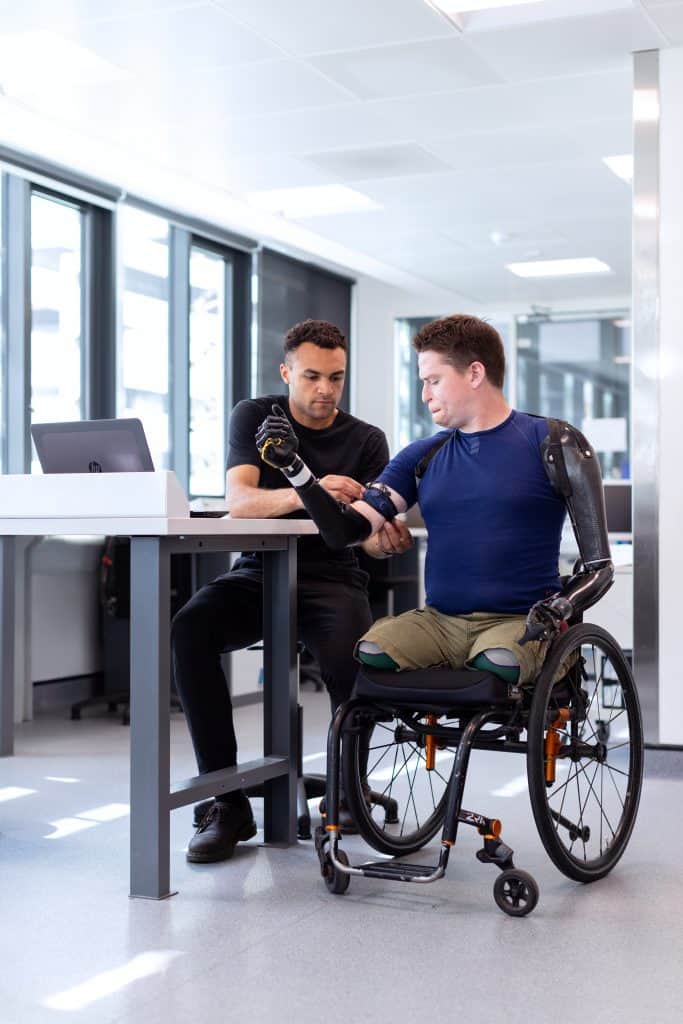Admitting Disability— Five Signs the Social Security Administration Will Approve Your Application
Disability applications can be long and drawn out, but here are the signs that you will be approved for Disability.
Are you suffering from a life-altering long-term illness or condition? A disability claim benefit provides a reliable source of income despite medical challenges. However, getting a Social Security Disability (SSDI) can be daunting.
The disability income available is scarce; so, decision-makers are tight-fisted. On top of that, these individuals are vulnerable to fraud accusations and charges. Hence, they need to be thorough and not hasty in their approval.
Therefore, to increase your chances of approval, you need to understand the requirements. Here are the signs you will be approved for SSI.
Requirements for a Successful Disability Claim
The claim approval process for these cases usually takes a relatively long wait. The long waiting period is due to the rule and bureaucratic nature of the claim process.
To hasten the process, you need to ensure;
- You’ve filled out the application form in its entirety and submitted it in time
- Include in your application all relevant medical evidence from your doctors
- To regularly check your application for the approval status. You can therefore make quick corrections when necessary
- Work with an attorney or an expert
5 Signs that you will be Approved for Disability
Many social disability claims fail the approval process for various reasons. However, there will be telltale signs that you will be approved for SSI disability. Below are the indications;
1. You Have Adequate Medical Report to Prove Your Case
One of the requirements when applying the Disability benefits is your medical evidence. The evidence needs to be timely and relevant to your claim. The evidence should include records that reference your conditions and disabilities.
Many claims don’t get approved due to a lack of satisfactory medical reports. So, don’t include documents not relating to your current disability as they aren’t necessary. SSDI examiners go through review medical records to assess the gravity of your disabilities.
Medical records you need to submit to support your claim include;
- A signed diagnostic report from your doctor. Remember to include documents confirming the results of all diagnostic tests
- A report of your medical history
- Description of treatments
- Receipts for prescription drugs
- X-rays report and any CT scans
Talk to your doctors for their support as it is very crucial. You stand a better chance with a doctor’s letter confirming your disabilities. Request the doctor also to mention how the disabilities affect your life.
2. You Can’t Work for Twelve Months or Longer
The Social Security Administration (SSD) requires proof of your inability to work. You need not have worked the last twelve consecutive months or longer. Your employer must submit documentation that you didn’t work for that period. Supplement this documentation with duplicates of your monthly earnings and bank statements.
Another sign is if you can prove that you can’t work for the next twelve months due to your disabling conditions. You must, however, also demonstrate that you can’t perform work within and outside your expertise. The SSA must confirm that you can’t return to your job before the disability. Neither can you do any other job outside your expertise.
With enough evidence to support your claim, you stand a good chance of getting approved. Just provide evidence and documentation from your doctor, including all results/reports. The doctor should also document your reaction to treatment, as well as the likely outcome.
If there is a chance your disability will last less than twelve months, you won’t qualify for the benefits. Apart from medical evidence, the SSA considers age, education level, and skills. Also keep in mind that they will investigate your prior work history.
3. You Fulfil Non-Medical Eligibility Requirements
There are non-medical requirements that you need to meet for SSDI benefits approval, however, if you meet them, this is one of the signs you will be approved for SSI. This includes previously being in gainful employment before your disability. Just be sure that you paid social security taxes and earned enough work credits during your career.
You earn work credits when you work and pay Social Security taxes. You need at least forty work credits to qualify for the SSDI insurance benefits. This means you need an equivalent of five years of full-time work in the last ten years.
If working part-time, you must be within the income bracket to qualify. In 2021, one gained one work credit for every $1,470 earned from salary or self-employment gains. However, young workers may be eligible without obtaining substantial work credits.
Work credits depend on the age an applicant first experienced the claimed disability;
- Under twenty-four years old. This requires a minimum of three years’ worth of six work credits, including the year you became disabled
- Aged twenty-four to thirty-one years old. Require work credits equivalent to half employment time between twenty-one years and the start of the disability.
- Aged thirty-one to forty-two years old, you need no less than twenty work credits
- Above forty-two years. The work credits required depend on an inclined scale. So, the older you get the more credits pile up by 2 to the twenty credit limit every two years.
Another non-medical eligibility requirement is that you earn less than the SGA. To qualify for SSDI benefits, you must not be fit for substantial gainful activity (SGA). You may attempt to return to the workforce after becoming eligible for SSDI benefits. In such a case, the SSA provides a trial work period. You will also earn from employment and SSDI benefits during this period.
However, the monthly earnings must be lower than the monthly SGA to qualify for a trial period. The SGA is income earned from work. Earnings considered as SGA depends on the nature of the disability one suffers. For the year 2022, the monthly SGA amount for the statutorily blind is $2260, while for the non-blind is $1350. Every year, both SGA amounts change to adjust to changes in the National average wage index.
4. Your Condition Meets the Social Security Blue Book Listing

The SSA uses the Social Security Blue Book Listing to determine eligibility for SSDI benefits. The Blue Book is a guide with a list of medical conditions, and the listings provide a guide when determining disability.
Each listing has criteria one must meet for disability approval. Your condition listed in the Blue Book does not automatically qualify you. You must provide sufficient evidence proving your disability meets the required criteria.
Each case is usually different for each claimant. So, medical professionals working for SSA will evaluate your claim. They will also assess your condition and ability to engage in gainful employment. If your situation fulfills the listing requirement on Blue Book, SSA will most likely approve your claim.
Some of these medical conditions listed in the Blue Book include;
5. You are Working with a Social Security Disability Attorney
Most claims get denied benefits for various reasons. You may meet the medical and other requirements listed in the Blue Book but fail to get approved. Some of the reasons for this unfavorable determination include
- Insufficient evidence and
- Lack of all forms and documentation
Your claim may also fail if you don’t make your submission in time. Enlisting the services of a Social Disability lawyer is necessary. These lawyers are knowledgeable and versed with the evidence needed for SSDI claims.
This evidence includes tests and notes necessary for a successful claim.
A lawyer will help you maneuver the otherwise difficult claims process. They will also help advance your application to the next level and discuss with you some of the signs you will be approved for SSI.
Some disabling conditions for SSDI benefits need more evidence than others. Your attorney knows these requirements. The attorney will work with your doctor for proper medical evidence and records. The attorney will also update the SSA on your condition should there be changes.
Generally, concluding a claim process lasts months. A disability lawyer will maintain communication with the SSA to help push the process. The lawyer will ensure your claim is moving forward with frequent status checks. Periodic checks reduce the risk of losing your claim in the Social Security system. Should SSA turn down claims, you can request your attorney to file an appeal.
The claim process is usually tricky and daunting. You need an attorney to explain and walk you through the process. An attorney will also ensure you complete and submit all requirements on time. With an attorney’s help, your disability claim stands a better chance of approval.
Social Security lawyers work on contingency fees. You won’t need to pay them upfront upon approval of your benefits. For this reason, your lawyer will do their best to win your approval.
Disability Determination Process
You can make your disability claim submission to SSA in person, by email, or by filing online. In the application, ensure to describe your disability well. Include your treatment sources and all other relevant information related to your illness.
For eligibility, the SSA also verifies other non-medical requirements. These non-medical eligibility requirements include age, marital status, and employment capability. The SSA computes your disability benefit amount if your condition meets all requirements. You will start receiving your benefits. If found not disabled, SSA will keep your file should you decide to appeal the determination.
We understand how daunting a claim application process can be and the signs of getting approved for disability. But we are here to help you through it all, no matter which state you are in. Reach out for help with;
- First time applications
- Reevaluating a denied claim, or
- Going to a hearing
Apply now to get help for your disability benefits.


